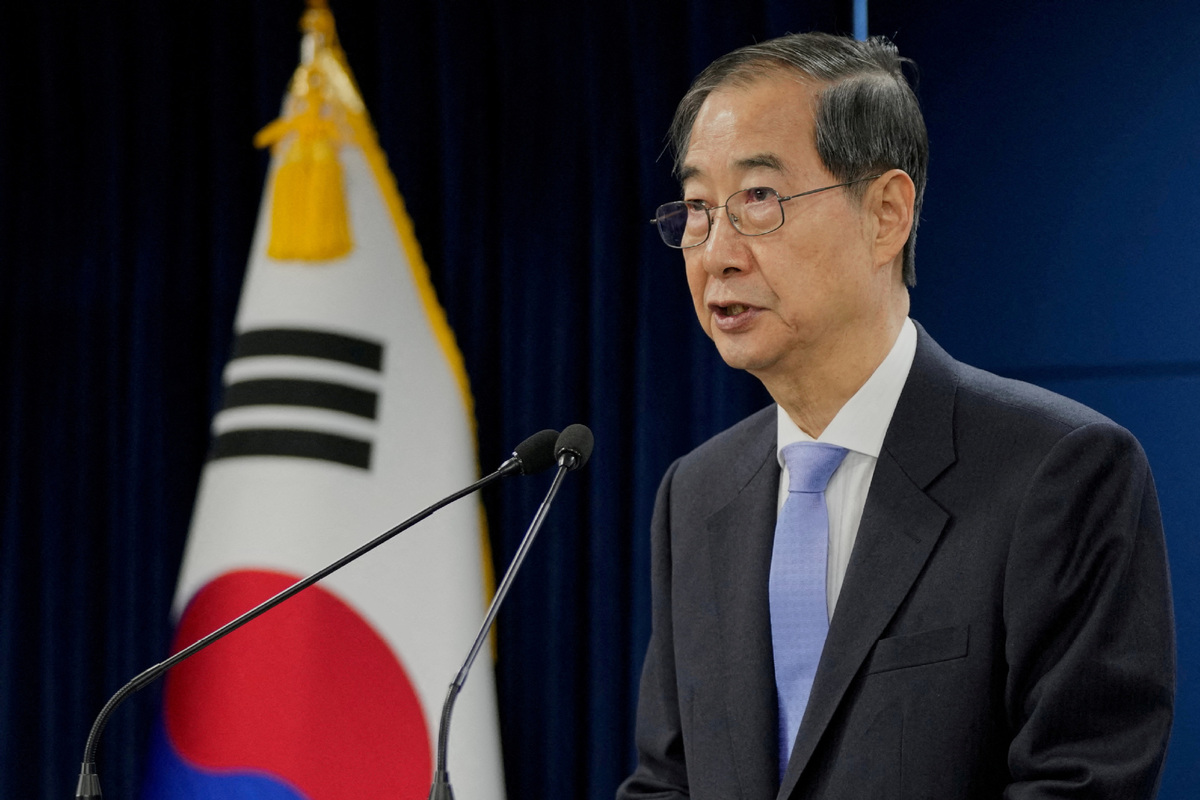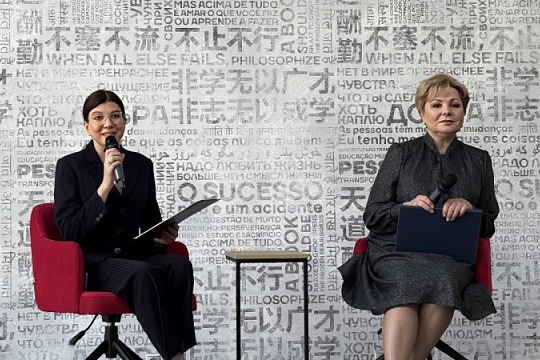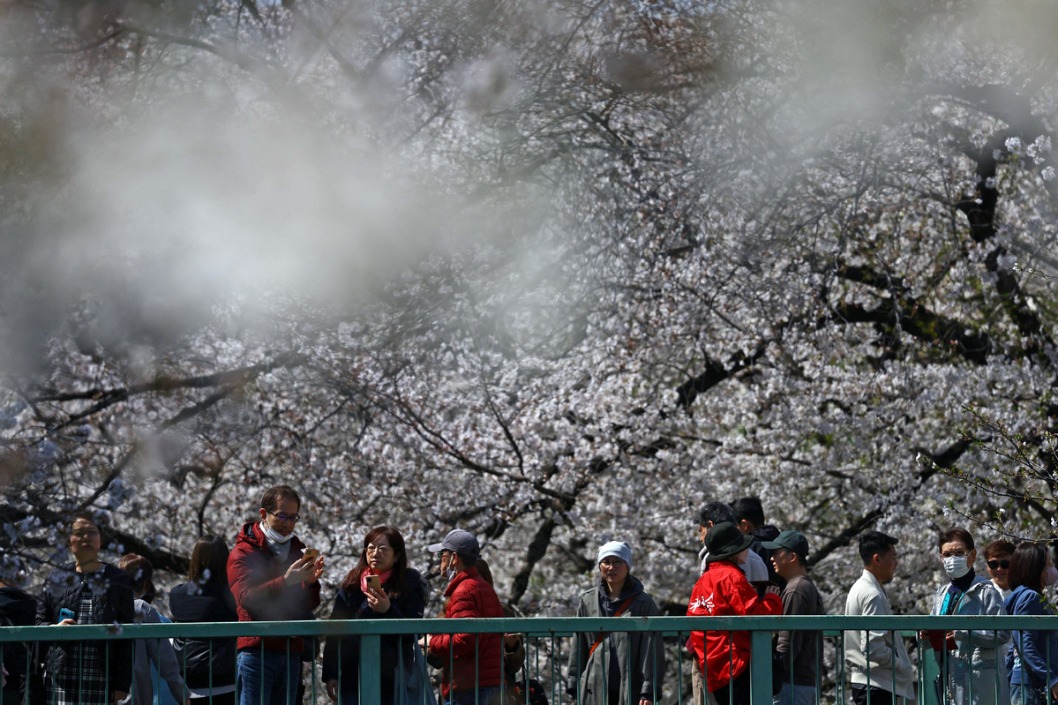South Korea prepares 'all-out' response to US tariff hike


South Korea's acting president Han Duck-soo ordered on April 3 an "all-out" response to the United States' higher-than-expected reciprocal tariffs on imports from the country.
According a news release issued by South Korea's Ministry of Trade, Industry and Energy, Han told an emergency meeting convened by the economic and security strategy task force, that the situation was very serious as a global tariff war approaches.
Earlier in the day, US President Donald Trump announced 26 percent reciprocal tariffs on South Korea, which is higher than that of Japan (24 percent) and the European Union (20 percent).
The chart initially showed a 25 percent tariff for South Korea but an executive order annex released by the White House showed a 26 percent tariff, Yonhap News Agency reported.
Once the reciprocal tariff takes effect on April 9, South Korea will face some of the highest rates as a country bound by a free trade agreement with the US.
"The government must pour all of its capabilities into overcoming this trade crisis," Han told the meeting with the finance and industry ministers, and other top officials.
Han urged the Industry Ministry to thoroughly analyze the detailed contents and impacts of the reciprocal tariffs, and to actively engage with the US in negotiations to minimize the impact.
"Emergency support measures for sectors and companies affected by the US' tariff plan, such as the automobile industry, should be prepared promptly at the government level," said Han.
The Korea Chamber of Commerce and Industry said in a statement that it will closely monitor the potential impact of the reciprocal tariffs and urged the two governments to engage in close coordination.
Though the US said goods such as semiconductors and automobiles will not be subject to the new tariff plans, risk of sector-specific tariffs persists as the industries remain cautious.
In a report, Yonhap said the warning signals flashing over exports to the US could be "fatal" to South Korea's economy, which has high dependence on the US market.
In 2024, South Korea exported $127.8 billion worth of goods to the US, marking a new annual high for the seventh consecutive year, according to data from the Korea International Trade Association.
There are also concerns that if more domestic manufactures begin to relocate production bases overseas in the mid-to-long term as they are unable to cope with high tariff pressures, it could trigger ripple effects across employment and consumption.
Last month, Hyundai Motor Group announced the opening of its new electric vehicle factory in Georgia, which is the group's third production facility in the US.
The group said it has no plans to raise prices in the US at this time and is evaluating the impact of the US tariffs, according to Reuters.
"The reciprocal tariff rates announced today will come as a shock to our trading partners and will cause harm to the US economy with higher prices, slower economic growth, and slowed down business investment," said Wendy Cutler, vice president of the Asia Society Policy Institute and former negotiator of the US-South Korea FTA.
In a statement, Cutler said Asian countries, in particular, have been hard hit given their export-driven economies.
While President Trump has underscored that he could have charged a lot more, US' partners will not view his action as "kind", said Cutler.































